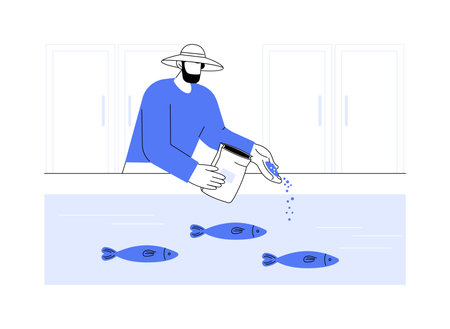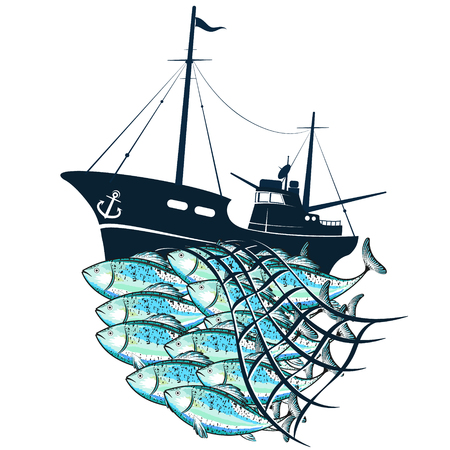Understanding the UK Rod Licence Requirement
Before you cast your line into Britain’s rivers, lakes, or canals, it’s crucial to understand why a rod licence is more than just bureaucratic red tape—it’s a vital part of the UK’s angling tradition and environmental guardianship. The legal requirement for a rod licence dates back to the 19th century, when authorities recognised the need to manage fish stocks and protect local waterways from overfishing. Today, holding a valid rod licence isn’t simply about complying with the law; it reflects a collective responsibility to safeguard aquatic habitats for future generations.
The funds generated from rod licences are reinvested directly into maintaining and improving fisheries, supporting conservation projects, and ensuring sustainable fish populations. This system allows anglers themselves to play an active role in environmental stewardship, helping maintain the delicate balance of Britain’s unique ecosystems. By requiring a licence, the UK not only upholds its long-standing angling heritage but also demonstrates respect for wildlife and fellow outdoor enthusiasts. Understanding this requirement is the first step toward enjoying responsible fishing while contributing positively to the health of British waters.
Fines and Penalties: What You Risk Without a Licence
Fishing in the UK is a cherished pastime, but it comes with its own set of legal obligations. One of the most crucial requirements for anglers is holding a valid rod fishing licence. Failing to do so is not just a minor oversight – it can lead to significant financial penalties and legal complications. Here’s a detailed look at what you could face if you’re caught without your licence.
Typical Fines and Legal Repercussions
The Environment Agency, which oversees freshwater fishing regulations in England and Wales, routinely enforces strict penalties on those found fishing without a valid rod licence. If you’re caught, you may be prosecuted in court and receive a fine that can reach substantial amounts. In some cases, additional costs and victim surcharges may also apply.
| Offence | Maximum Fine | Additional Costs |
|---|---|---|
| Fishing without a rod licence | Up to £2,500 | Court fees & victim surcharge |
| Repeat offence or aggravated circumstances (e.g., using multiple rods) | Up to £5,000 | Increased legal costs |
Real-World Examples
It’s not uncommon for local news stories to highlight anglers fined hundreds of pounds after being caught during routine checks. For instance, one angler in Lancashire was fined £800 plus court costs for fishing without a valid licence on multiple occasions. These cases serve as a stark reminder of how seriously the authorities take compliance.
The Ripple Effect: Beyond Financial Losses
A conviction for fishing without a licence doesn’t just hit your wallet – it may also leave you with a criminal record. This can have knock-on effects on your reputation within angling communities and even impact applications for certain jobs that require disclosure of convictions. Additionally, repeated offences may result in bans from local fisheries or clubs.
The message is clear: skipping your rod licence is not worth the risk, both financially and legally. Ensuring you are properly licensed is the simplest way to protect yourself from hefty fines and unwanted legal headaches.

3. Enforcement: How the Rules Are Upheld
In the United Kingdom, ensuring anglers comply with rod licence regulations is not merely a matter of trust; it’s an active process upheld by a combination of official oversight and local vigilance. The Environment Agency (EA) stands at the forefront of enforcement, deploying officers to conduct routine and random checks across rivers, lakes, and reservoirs. These checks often take place during peak fishing seasons or in popular angling locations, making it difficult for would-be rule-breakers to predict when scrutiny might occur.
Local bailiffs – individuals entrusted with protecting fisheries and the natural environment – play an equally vital role. Many are seasoned anglers themselves, equipped with sharp eyes for detail and a deep-rooted respect for British angling traditions. Their presence is particularly felt in well-loved spots where community ties run strong, and their patrols often extend into the quieter corners of the countryside. Bailiffs may request to see your licence on the spot, sometimes alongside other documentation such as proof of catch limits or permission slips where required.
The authorities are empowered to ask any angler for their rod licence at any time while fishing. Refusing to comply can escalate matters quickly, potentially leading to fines or even prosecution. It’s worth noting that enforcement is not just about punitive action; it’s also about education. Officers frequently engage with anglers to explain the rules and foster a sense of stewardship over Britain’s waterways. This balanced approach helps preserve both the sport and the unique ecosystems upon which it depends.
4. Your Rights if Challenged
If you’re approached by an Environment Agency officer or other authorised official while fishing in the UK, it’s important to understand your rights and obligations. Here’s a practical guide to help you navigate the situation confidently and legally.
What To Expect During an Inspection
Officials are empowered to check for rod licences, particularly in public waters. Inspections are generally straightforward, but knowing what you should (and should not) do can make all the difference.
| Action | Your Rights | Your Obligations |
|---|---|---|
| Asked to show your rod licence | You may ask the officer for identification and clarification of their authority | You must present your valid rod licence for inspection if requested |
| Questioned about your catch or equipment | You have the right to remain silent beyond providing personal details and licence information | You must answer basic questions regarding your identity and provide relevant documents if requested |
| Issued with a fixed penalty notice or asked to provide personal details | You may request an explanation of the alleged offence and evidence being relied upon | You must provide accurate name and address; giving false information is itself an offence |
| Requested to surrender equipment or catch | You may request a receipt for any items taken by officials | You must comply if instructed by an authorised officer under proper procedure |
Practical Steps If Stopped By An Official
- Stay calm and polite: Most checks are routine and non-confrontational.
- Ask for ID: You are entitled to confirm the official’s credentials before proceeding.
- Provide documentation: Show your rod licence promptly if you have one. If you don’t, be honest—attempting deception will worsen matters.
- Take notes: Record details of the interaction, including names, badge numbers, time, and place. This information could be useful if you wish to challenge any action later.
- Request written information: If issued a notice or warning, ask for this in writing. Do not sign anything unless you fully understand it.
If You Believe Your Rights Have Been Breached
If you feel the inspection was conducted improperly or your rights were infringed, you can file a formal complaint with the Environment Agency. Retain all documentation and witness details to support your case.
A Final Word on Cooperation and Courtesy
The vast majority of anglers who approach these situations with openness and respect find that officials reciprocate. Remember: being well-informed is your best defence—and ensures that both your rights and responsibilities are upheld along our beautiful British waters.
5. Appeals and Paying Fines: The Next Steps
If you find yourself facing a penalty notice for fishing without a valid UK rod licence, it’s essential to know your options and responsibilities. The process is clear-cut but requires prompt attention to avoid escalating consequences.
Receiving a Penalty Notice
The Environment Agency or relevant enforcement body will typically issue a penalty notice either on the spot or by post if you are found angling without the correct paperwork. This notice outlines the alleged offence, the fine amount, and instructions for payment or appeal. Don’t ignore it; failure to respond can lead to further legal action, such as court proceedings and increased fines.
How to Pay Your Fine
Most penalty notices will provide several ways to settle your fine—online, by phone, or by post. The instructions are usually straightforward, with a deadline clearly stated (often within 28 days). Prompt payment can close the matter swiftly, avoiding additional charges or complications. Remember to keep proof of payment for your records, just in case questions arise later.
Contesting the Penalty: Your Right to Appeal
If you believe the penalty has been issued in error, or there are mitigating circumstances (such as honest mistakes or unclear signage), you do have the right to contest it. The notice will detail how to submit an appeal—usually in writing—to the authority listed. Clearly state your case and include any supporting evidence, such as photos, receipts, or witness statements. It’s wise to act quickly; there’s often a short window in which appeals are accepted.
What Happens Next?
Once your appeal is submitted, the agency will review your case and may contact you for further information. If they uphold your appeal, the penalty could be cancelled or reduced. If not, you’ll be informed of your next steps—which may include paying the original fine or attending a Magistrates’ Court hearing if you wish to challenge their decision further.
A Final Word on Compliance
While it might seem like a faff at times, respecting rod licence rules and understanding your rights helps maintain Britain’s cherished waterways for all. Should you encounter trouble with enforcement, responding promptly and following due process is always your best bet—whether that means paying up or making your case heard.
6. Promoting Responsible Angling in the Community
Adhering to rod licence regulations is more than just a legal obligation—it’s a mark of respect for the delicate balance of our rivers and fisheries, and for the angling community as a whole. When each angler ensures they have the correct licence, they contribute directly to the preservation and enhancement of aquatic habitats across the UK. The funds generated from rod licences are reinvested into vital conservation work: restocking fish populations, improving riverbanks, supporting biodiversity, and sustaining the tranquil beauty that makes British waterways so cherished.
Responsible angling also fosters a sense of camaraderie among those who cherish the sport. Knowing that your fellow anglers are observing the same rules helps nurture trust and mutual respect at the water’s edge—an essential ingredient in any thriving community. Moreover, setting a good example encourages newcomers to embrace ethical fishing practices, ensuring that future generations inherit healthy rivers teeming with life.
Ultimately, compliance with licensing laws is not just about avoiding fines or enforcement action; it’s about safeguarding a tradition that weaves through British culture like a silver thread. By playing our part, we help ensure that the simple pleasure of casting a line endures—preserving both the natural world and the timeless rituals of angling for all who follow.


